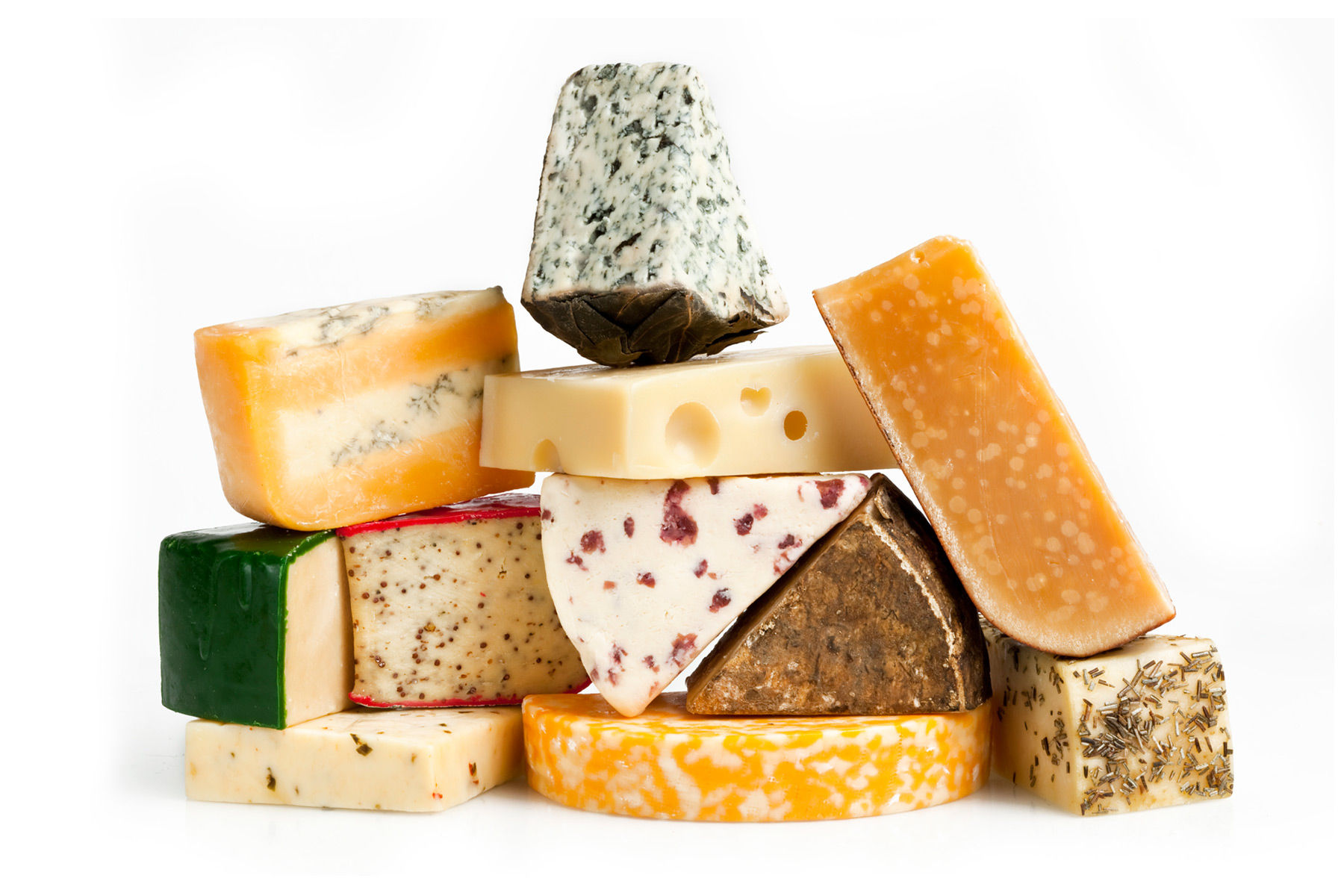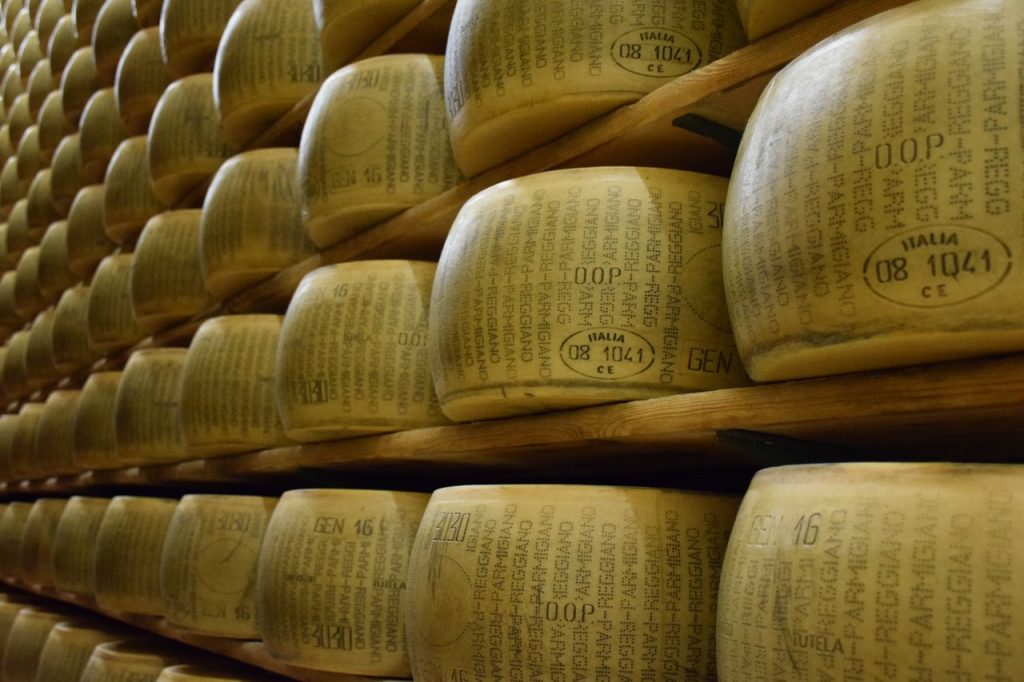How Cheese is Made

How is cheese made?
- The first step in preparing cheese is pasteurizing the milk.
- Good bacteria is added in that would help it coalesce.
- Coagulant is included in the mix to help the milk fuse.
- The “clumps of cheese will be cut, and be cooked at specific temperatures to separate the liquid whey from the milk solids.
- Salt is added to enhance the taste and inhibit bacteria growth.
- Finally, the cheese is aged for it to finally develop its texture and flavor.
Cheese has a strange history in that it – well – sort of doesn’t have a definite one. It’s a food so old that its origins predate recorded history; many European and Middle-Eastern texts mention it but other parts of the world do not. Also, while not particularly well-known as their European counterparts, Asia also has their own selection of cheeses for people to choose from. Though history may not have mentioned them in this aspect, Asia’s oldest known cheese was only recently discovered when an archaeological site was being excavated in 2003. Several tombs were found with bits of curd strewn about, which upon analysis was found to be filled with fat and protein.
Anyway, only in the latter half of the 1800s when wholesale cheese production boomed did its popularity spread beyond Europe and America. That’s in stark contrast to modern times wherein cheese is readily accessible, and although it’s rarely a part of ethnic cuisines outside of Europe, the Middle East, and America, it remains a popular food worldwide. Here in the Philippines there is a local variation – the keso.
In fact, cheese can be served in a variety of ways, ranging from being used as an ingredient for many dishes to simply being used as a dip for various foods on the table. As long as it’s at the right temperature, who cares what occasion it may be?
No Filipino meal would be complete without it as it’s commonly used as a topping for numerous dishes and desserts, in addition to being a staple part of a classic local breakfast. Have you ever had pandesal in the morning with a cheese filling? Or even a creamy cheese-flavored ice cream for dessert? There’s also the local favorite known as ‘kesong puti’, a rich and creamy cheese made from carabao’s milk that is sure to guarantee Filipino-style enjoyment. Now that’s the Filipino palate right there!
As Filipinos, they have a knack of being adventurous when it comes to cooking. Using local produce and different techniques and recipes, each dish is a different experience from the other. Given the Philippines’ history with their abundance of spices and other ingredients, it’s no surprise that many of their dishes last multiple generations. And with their collection of classic dishes, it is of no surprise that their dishes have been given a magical touch. In this case, cheese can be added for a unique, creamy experience.
Also, Filipinos also have a knack in adding the ingredient into some of the most unorthodox dishes there is. So don’t be surprised to see cheese infused in your adobo or caldereta. It may seem a bit weird upon first glance, but it works nonetheless.
Whether one is preparing a meal for wedding catering services, cooking up some food for a local fiesta, or getting ready for Noche Buena, it’s always a good idea to slip some keso into the menu. After all, satisfying your guests with your food is the best way into their hearts…and stomachs.
But as mentioned before, keso is only the Philippine version of cheese. Other countries have their own kinds – the French alone have about 400 distinct types. This is matched by Italy, who have about the same, but are outnumbered by Britain with approximately 700 cheeses to their name. Usually, you see these cheeses being paired with some fruit, crackers, and the best wine there is. With that much variety on the table, you can’t go wrong with your sense of taste.
Each type of cheese is made with a specific method, but the overall procedure remains the same.
- It all begins with quality milk, which is treated or pasteurized to ensure cleanliness and uniformity. (Fun fact: it takes about 10 pounds of milk to make one pound of cheese.)
- Starter cultures (also known as good bacteria) are added in. The milk is then brought up to temperature, somewhere between 77 to 100 degrees Fahrenheit to simulate an animal’s body temperature. This activates the starter culture that lowers the milk pH enough that it will be able to coalesce.
- The coagulant is introduced to the mix, usually rennet. The milk will then fuse, forming into a custard-like mass.
- The “clump” is cut to size – large cuts that are cooked at lower temperatures yield soft cheeses (like Ricotta) while small cuts cooked at higher temperatures yield the harder types (like Romano). This is done to separate the liquid whey from the milk solids – the curds. Depending on how the curd is handled and how much whey is drained from it, different cheeses will form.
- Salt is added – this enhances the cheese’s taste, keeps unwanted organisms away, and inhibits bacteria growth. This step is also a factor in determining the cheese that will be made as different handling techniques and salting will affect the cheese type.
- It is then pressed – this finalizes the shape and helps in completing the curd formation.
- Lastly, the cheese is aged. It is during this stage when the cheese can fully develop its final texture and flavor; for some cheeses this is when the rind starts to come about. This should only be done in an environment with a controlled temperature and humidity.
Key Takeaway
Cheese is the one food that everyone can never get sick of. Its texture, appearance, and taste are enough to drive anyone crazy with excitement. No matter how it’s made or served, be sure to always keep your tastebuds open and savor every bite you take from it.
Who knew that cheese-making can be so difficult? As a common household ingredient that’s now perpetually taken for granted, take a second to appreciate all the effort and thought placed into creating such a diverse and rich food. After all, diversification in cuisine is what makes food the marvel it is today.
In different parts of the world, there is bound to be different servings on each plate. And with a little cheese on it, you are sure to enjoy no matter what.





